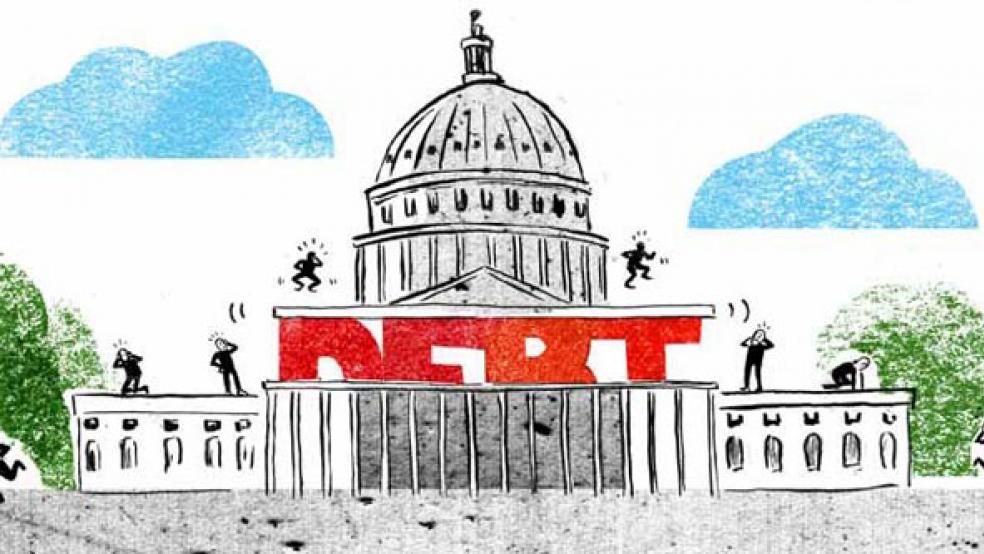Are the ratings agencies trying to restore their credibility on the backs of U.S. taxpayers? Standard and Poor’s and Moody’s, the nation’s largest credit watchdogs, are making headlines, warning of imminent downgrades of U.S. government obligations. President Obama and members of Congress have seized on these alarms, using them to create an even greater sense of urgency about raising the debt ceiling.
It’s an ironic turnabout from just three years ago, when the agencies (including Fitch, a distant number three) made different kinds of headlines. In the heat of the financial crisis, they were widely criticized for their utter failure to recognize the subprime mortgage tsunami that derailed our economy that precipitated the budget crisis now confronting the nation.
Their role in aiding and abetting the purveyors of the now-infamous CDSs and CDOs, by providing unwarranted triple-A ratings, was not the first in which Moody’s and S&P had been caught wrong-footed. Both companies had failed to unearth the chicanery at Enron and WorldCom, for example, though a small rival named Egan-Jones had blown the whistle on those companies before they went under.
In fact, Congress held hearings on the major ratings agencies in 2006 in the wake of numerous corporate scandals. Legislators questioned the agencies’ conflicts of interests (both companies were paid by the very firms whose bonds they were meant to rate and also offered those firms consulting services, as did accounting firms until they were barred from doing so) and their level of expertise. Also investigated was the lack of competition in the ratings business and the role played by the SEC in discouraging new entrants.
The agencies had their ears pinned back further in the year-old Dodd-Frank bill. The SEC is required to adopt new rules governing conflicts of interest, disclosure of performance data, analyst training and the like – much of which is yet to be implemented. In other words, the agencies are still on thin ice.
Criticism of the ratings agencies is not confined to our shores. In the past several weeks, monetary authorities in Europe accused the firms of “bias” after Moody’s downgraded Portugal’s debt to junk status. European Commissioner President Barroso suggested that the EU should begin looking for alternative sources of guidance for their debt, and was quoted as saying “We must break the oligopoly of the ratings agencies.” Other observers noted that, as usual, the agencies were actually behind the curve on spotting the deterioration in EU debt; the credit default swaps markets had forecast the slide months earlier.
For all these reasons, there is ample incentive for Moody’s and S&P to try to get ahead of the U.S. looming debt crisis. Despite their history, their input has been welcomed- treated as oracular, even -- by our political leaders. For both sides in the debate, alarm bells rung by the agencies have served a purpose. It has allowed President Obama to chastise the GOP for not responding to the gravity of the debt crisis; at the same time it has allowed Republicans to press their case for spending cuts. Unhappily, unless the two sides in this debate emerge from their bunkers and manage to fashion a meaningful compromise, the ratings agencies may well have to follow through and downgrade the nation’s debt, conceivably costing taxpayers hundreds of billions of dollars in higher interest on the federal debt in years to come.
In a recent note to investors, banking analyst Dick Bove cites higher mortgage rates, increased borrowing costs for municipalities, a decline in the value of the dollar, rising import prices, a drop in bank reserves leading to tightening credit, and sinking bond values as collateral damage from a downgrade. That’s an awfully high price to pay for the restoration of S&P and Moody’s reputations.
It is too high a price, especially if they turn out to have underestimated the United States and added to the concerns of investors around the world. S&P hinged its potential downgrade on Congress not raising the debt ceiling and also on the prospect for an ever-worsening fiscal picture. The first is simply inconceivable; surely our hapless legislators will arrange for the U.S. to pay our bills. The second is infuriating – even our much-maligned CEOs know how to cut costs. Why should the federal government be any different?
One reasonable voice in the sanity wilderness is that of Tom Coburn, Senator from Oklahoma and member of the Gang of Six. Dr. Coburn is a persistent nag on the topic of government waste, who has recently released a 614-page plan to cut the deficit by $9 trillion over the next ten years. How does he accomplish this miracle? By making the kinds of decisions that any CEO would.
His plan includes small items like reducing the number of limos used by federal agencies (saving $10.4 million per year) and eliminating Hollywood liaison offices ($3.2 million), and bigger items such as cutting Department of Agriculture spending by $346 billion over ten years. He calls for President Obama to save $5.4 billion over ten years by cutting the annual White House budget of $830 million by 15%, in line with the recommendation of the Simpson-Bowles Commission.
There are, of course, more important and more controversial items in the Coburn plan, such as getting the federal government out of public education and reforming entitlements programs. Much of the savings, though, stems from eliminating duplicative programs and nonessential spending – the kind that has to be junked in a crisis. Most Americans would be cheered just knowing that our government is becoming more efficient. We might find late-night comedians starved for material, but it would be worth it to prove the credit ratings agencies wrong, once again.






